In his address at the event, the Chairman of AMECEA outlined the history of SCCs in the Eastern Africa region, noting that the 1994 synod that saw African Bishops meeting for a special assembly was not the first time for the continent to interact with SCCs.
Bishop Kasonde recalled the founding of AMECEA in 1961 by Bishops in Eastern Africa, who he said had the desire to inspire the African cultures with the message of the Gospel through an Ecclesial model that they wanted to be “truly local, self-reliant, self-ministering, and self-propagating.”
“In the AMECEA Assembly that was held in Nairobi in 1973, the key statement was that ‘We are convinced in the Eastern countries of Africa, it is time for the Church to become truly local’. Since that time, the Bishops of AMECEA resolved that every Diocese within the AMECEA region should form Small Christian Communities at various levels as a pastoral tool for evangelization,” the Zambian Catholic Bishop said.
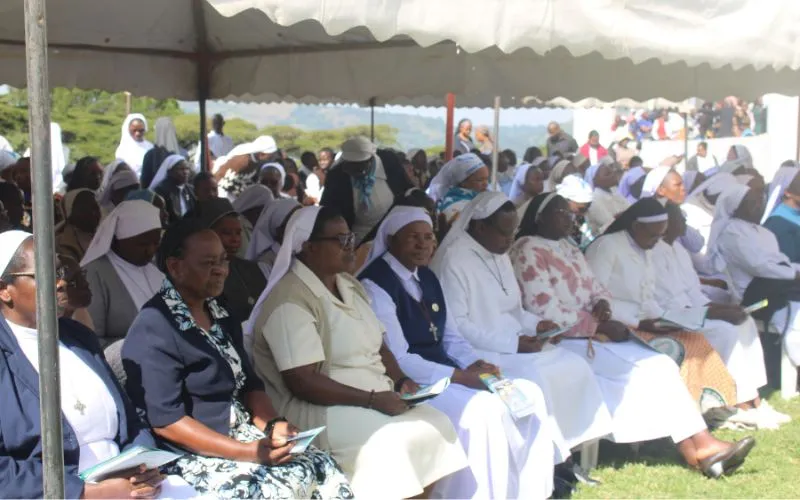 Pilgrims at Subukia National Marian Shrine on Saturday, 5 October 2024. Credit: ACI Africa
Pilgrims at Subukia National Marian Shrine on Saturday, 5 October 2024. Credit: ACI Africa
He said that since their meeting in Nairobi, then, Catholic Bishops in AMECEA have remained committed to the building of the Church around SCCs.
(Story continues below)
The AMECEA Bishops have also emphasized that SCCs “should not remain optional, but rather be central to the life of faith, and life of ministry for all agents of evangelization,” Bishop Kasonde said.
To date, he went on to say, SCCs have been a key pastoral tool for AMECEA, making five decades of existence.
The AMECEA chair noted that this year’s celebration of the SCCs 50 years coincides with the ongoing Synod on Synodality, which he said “can be seen as an expression of the same spirit embodied in small Christian Communities.”
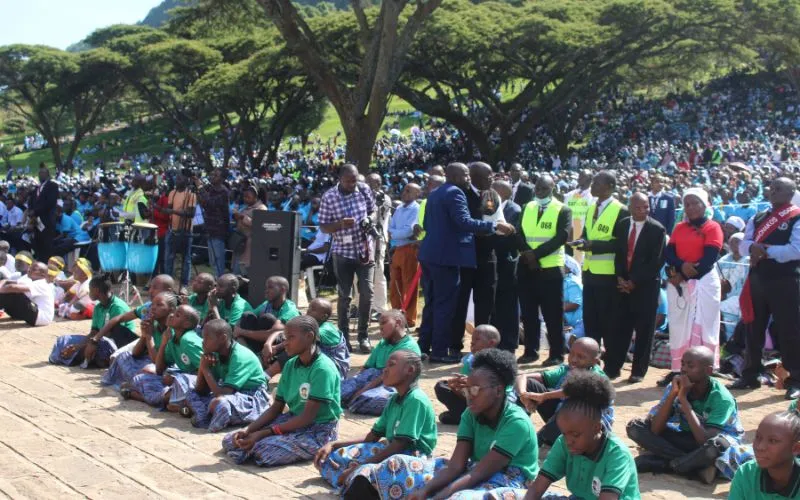 Pilgrims at Subukia National Marian Shrine on Saturday, 5 October 2024. Credit: ACI Africa
Pilgrims at Subukia National Marian Shrine on Saturday, 5 October 2024. Credit: ACI Africa
Bishop Kasonde said that moving forward SCCs must be places of nourishment rooted in the Word of God.
Additionally, SCCs should be places for promoting prayer life, where members are nourished by the Word of God, he said, and explained, “Every Christian should have a personal Bible for consultation and reflection. Let us use our Bibles regularly.”
SCCs, the Catholic Bishop said, should be places for nurturing vocations and ministries, and where integral development of the entire human person is promoted.
At the event, Bishop Joseph Maluki Mwongela of the Catholic Diocese of Kitui who also serves as the Chairman of KCCB’s Commission for Pastoral and Lay Apostolate challenged SCCs in the AMECEA region to foster the spirit of sharing among themselves.
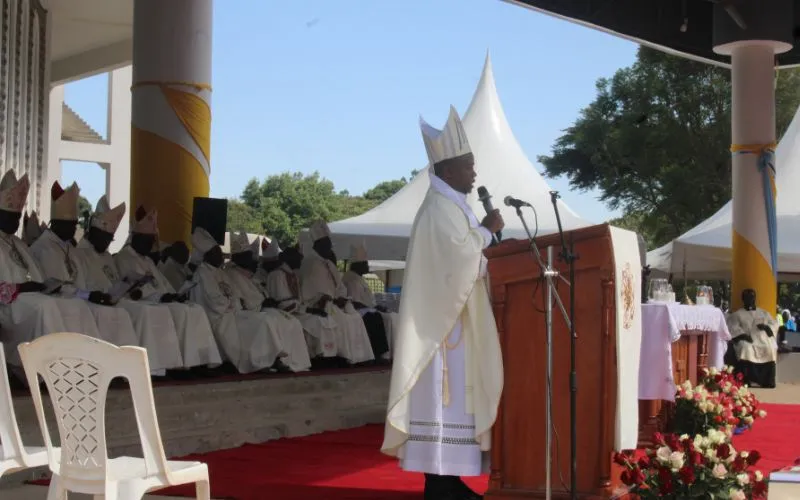 Bishop Joseph Maluki Mwongela of the Catholic Diocese of Kitui who also serves as the Chairman of KCCB’s Commission for Pastoral and Lay Apostolate at Subukia National Marian Shrine on Saturday, 5 October 2024. Credit: ACI Africa
Bishop Joseph Maluki Mwongela of the Catholic Diocese of Kitui who also serves as the Chairman of KCCB’s Commission for Pastoral and Lay Apostolate at Subukia National Marian Shrine on Saturday, 5 October 2024. Credit: ACI Africa
“As we journey together as a people of God in our Small Christian Communities, let us pray that we may learn as a country, as a people that many are the times when small is much,” the Kenyan Catholic Bishop said.
He added, “In our Small Christian communities, let us not seek to have everything for ourselves, but have something for everyone and be contented.”
Agnes Aineah is a Kenyan journalist with a background in digital and newspaper reporting. She holds a Master of Arts in Digital Journalism from the Aga Khan University, Graduate School of Media and Communications and a Bachelor's Degree in Linguistics, Media and Communications from Kenya's Moi University. Agnes currently serves as a journalist for ACI Africa.
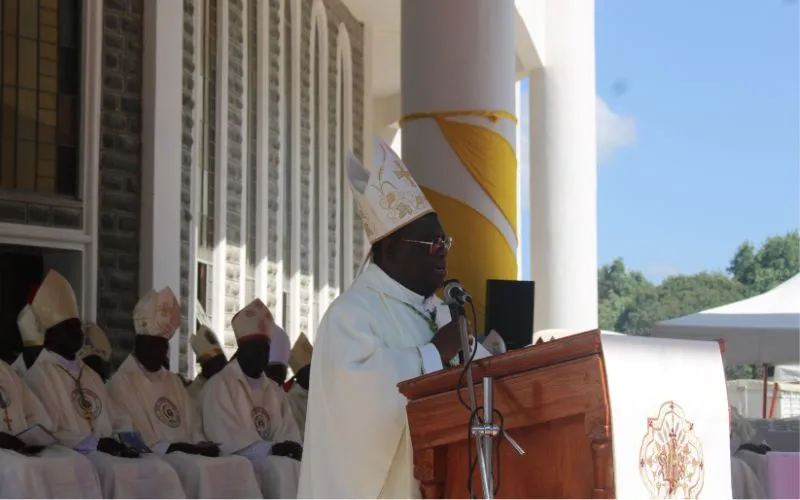 Bishop Charles Sampa Kasonde of Zambia’s Catholic Diocese of Solwezi and Chairman of AMECEA at Subukia National Marian Shrine on Saturday, 5 October 2024. Credit: ACI Africa
Bishop Charles Sampa Kasonde of Zambia’s Catholic Diocese of Solwezi and Chairman of AMECEA at Subukia National Marian Shrine on Saturday, 5 October 2024. Credit: ACI Africa


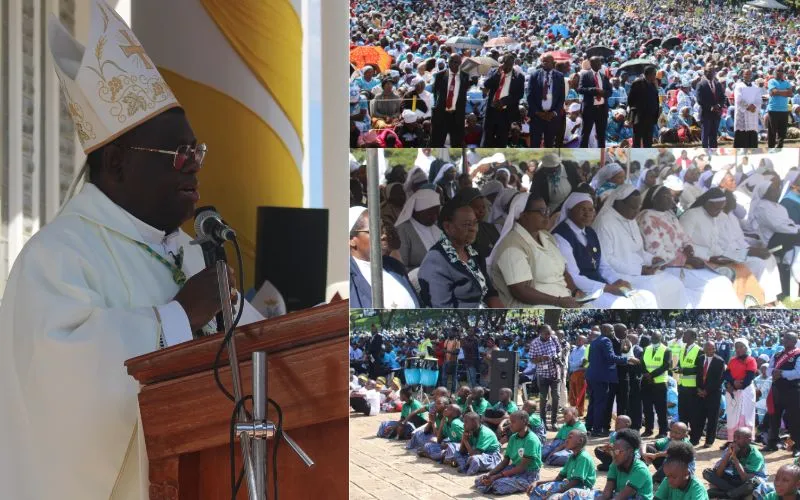
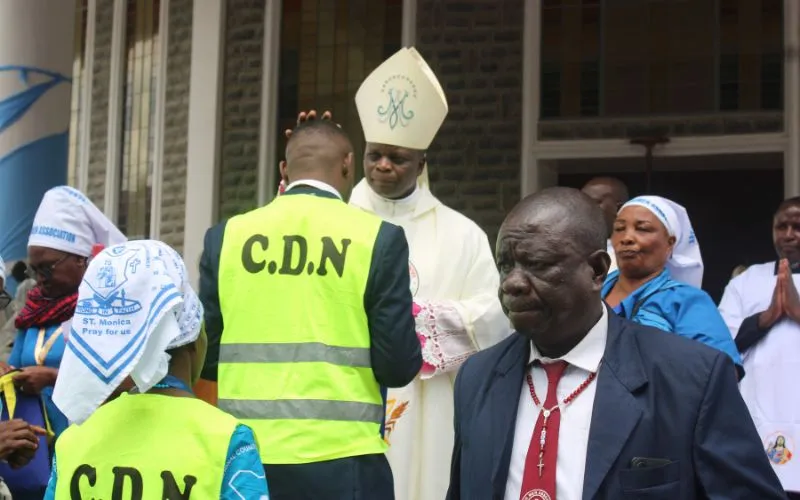 Archbishop Maurice Muhatia Makumba at Subukia National Marian Shrine on Saturday, 5 October 2024 Credit: ACI Africa
Archbishop Maurice Muhatia Makumba at Subukia National Marian Shrine on Saturday, 5 October 2024 Credit: ACI Africa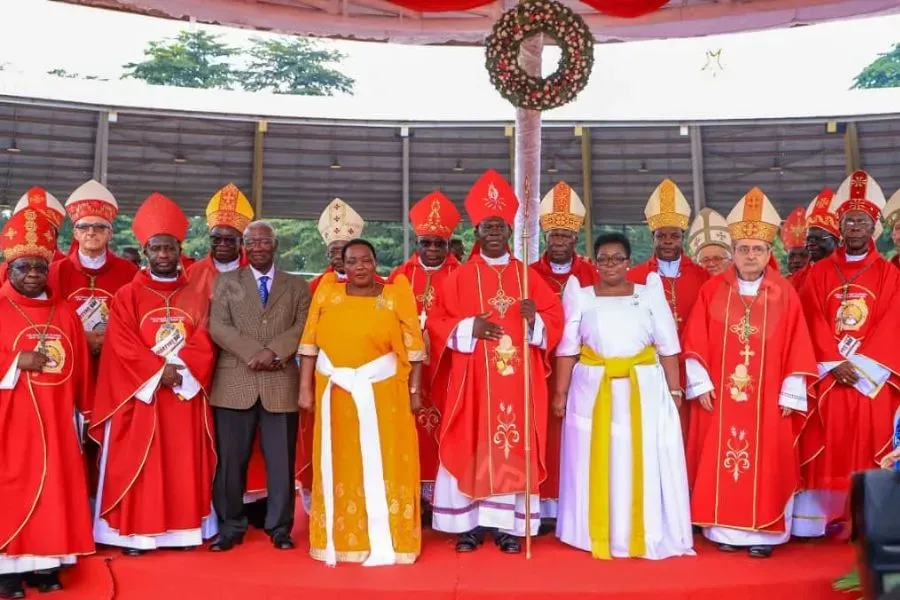
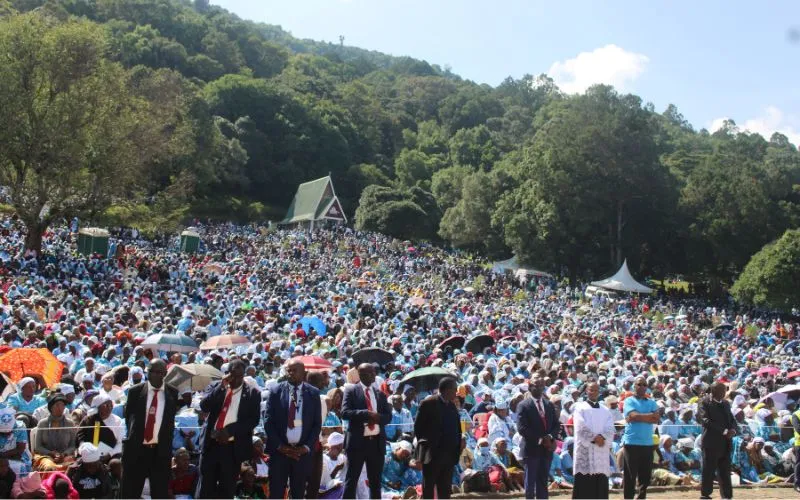 Pilgrims at Subukia National Marian Shrine on Saturday, 5 October 2024. Credit: ACI Africa
Pilgrims at Subukia National Marian Shrine on Saturday, 5 October 2024. Credit: ACI Africa Pilgrims at Subukia National Marian Shrine on Saturday, 5 October 2024. Credit: ACI Africa
Pilgrims at Subukia National Marian Shrine on Saturday, 5 October 2024. Credit: ACI Africa Pilgrims at Subukia National Marian Shrine on Saturday, 5 October 2024. Credit: ACI Africa
Pilgrims at Subukia National Marian Shrine on Saturday, 5 October 2024. Credit: ACI Africa Bishop Joseph Maluki Mwongela of the Catholic Diocese of Kitui who also serves as the Chairman of KCCB’s Commission for Pastoral and Lay Apostolate at Subukia National Marian Shrine on Saturday, 5 October 2024. Credit: ACI Africa
Bishop Joseph Maluki Mwongela of the Catholic Diocese of Kitui who also serves as the Chairman of KCCB’s Commission for Pastoral and Lay Apostolate at Subukia National Marian Shrine on Saturday, 5 October 2024. Credit: ACI Africa


